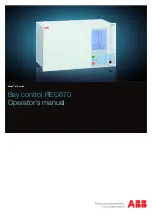5
1.4. RFID and electronic clocking.
An electronic clocking system actually is an RFID system composed of four elements:
- a transponder or chip ring,
- a part in the club (universal basketing antenna, UBA or CLUBMASTER),
- a part at the fancier's loft (loft antenna),
- and a part in which the data are stored.
The part in which the data are stored are called in this document "terminal" or electronic
clock (EC) for uniformity's sake.
The CLUBMASTER always remains in the club, the loft antenna is in the fancier's loft. The
EC is the mobile part which h as to be in the club when basketing or on the loft when
clocking.
By creating a standard we want to obtain a compatible connection between the devices in
the club and the terminal. The connection between the terminal and the loft antenna does
not have to be compatible since the fancier normally only uses the products of one
manufacturer at home. The Belgian standard cannot be compared to the standards of
other countries. Belgium is the only country in the world with such a diversity of races. In
some other countries a pigeon fancier is tied to one single club and cannot basket
anywhere else.
The fancier's individual freedom, regarding the choice of his electronic system, is quite
limited. He can only choose the system his club uses, or he can opt for not clocking
electronically. The persons responsible for the club decide what system should be used.
In Belgium however, every fancier can basket in several (four, five or more) different clubs
and enter several flights. Each fancier can choose from a large number of flights, that is
probably the reason why the Belgian pigeon is so much wanted. Belgium has the largest
number of races and the hardest selection.
To protect this unique Belgian type of racing, electronic clocking should be adapted to this,
and not the other way around.
Outside Belgium, several clocking systems are for sale. In principle, these systems are
mutually not compatible.
Since fanciers in Belgium can basket in several clubs and for different flights, these
systems need to be highly compatible.
If not, we can risk several things:
- the fancier needs to buy as much clocking systems as there are different systems in
the clubs he plays in …
or
- every club needs to buy as much clocking systems as there are different systems
from their fanciers. It could happen that a club needs four basketing tables per flight
with a different system each, because there are 4 different clocking systems in their
group of fanciers.
None of these situations would be acceptable, neither for the club nor for the fancier.
That is why the K.B.D.B. (Belgian pigeon federation) has set a standard with which all
electronic systems should comply before they can be homologated for the Belgian market.


















